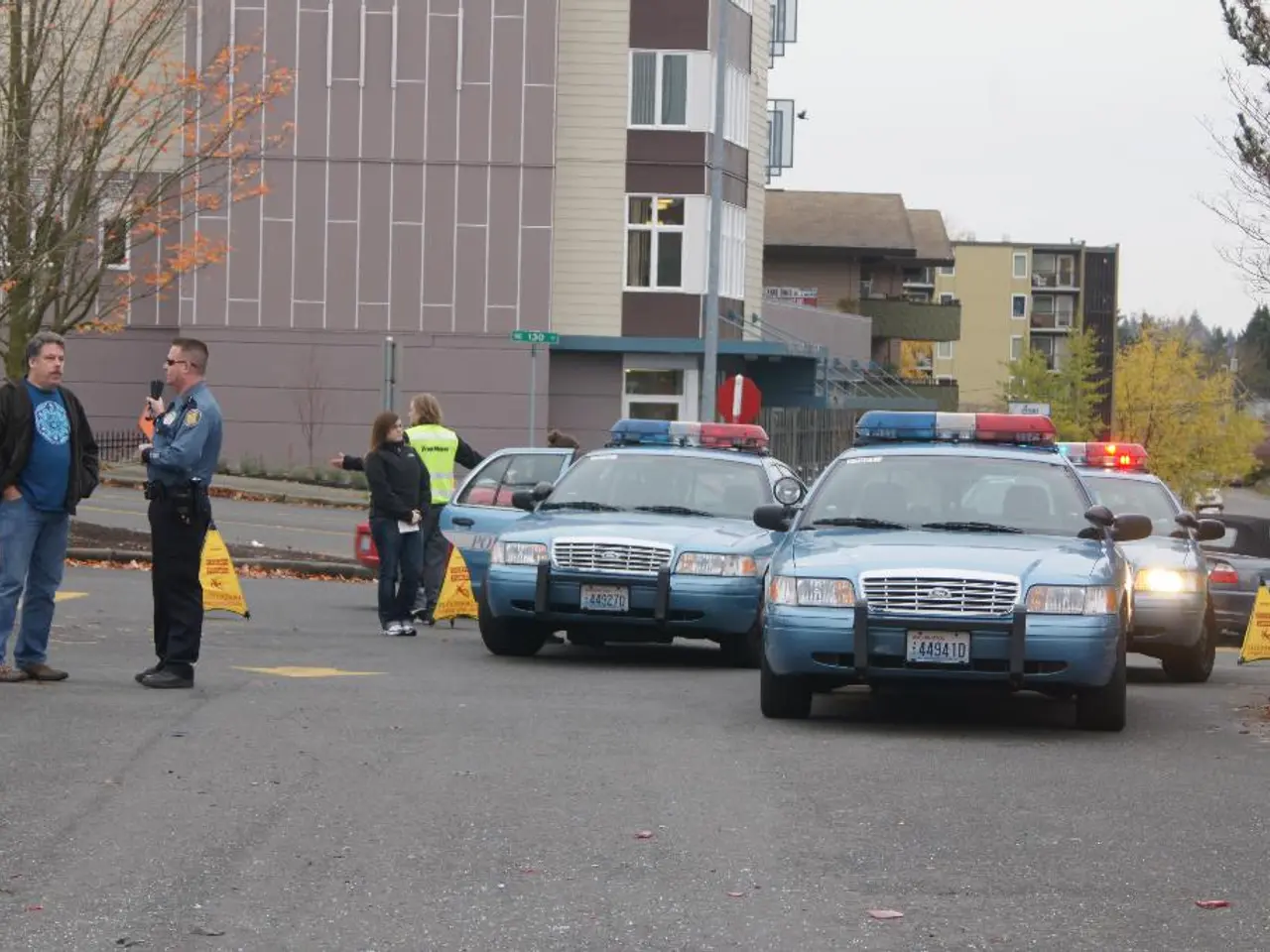Shift in Civil Defense Advocated by Dobrindt - Times of shift in civil protection, according to Dobrindt
In a bid to adapt to the evolving security environment, Germany is rethinking its approach to civilian population protection, particularly in the context of safeguarding civilian and population welfare. This shift is evident in the country's new strategy, which emphasises resilience to a variety of threat scenarios, including hybrid threats like disinformation and foreign interference.
Alexander Dobrindt, the Federal Interior Minister, is spearheading this change, advocating for a more integrated strategy that encompasses political, social, informational, and infrastructural dimensions. This strategy is being implemented through a whole-of-society approach, which involves coordinated actions across federal, state, and local governments, security authorities, and civil society.
A key aspect of this approach is interministerial coordination. An interministerial, multi-authority task force is working to identify disinformation narratives and reinforce fact-based public communication. This task force collaborates closely with security authorities, the Federal Chancellery, Foreign Office, and civic education agencies to detect and counter threats.
Moreover, Germany is investing heavily in its defense and infrastructure. The 2025 budget, amounting to a record €503 billion, includes extensive borrowing to fund infrastructure and defense improvements. This investment is not just focused on military capability but also on broader societal security infrastructure, supporting a comprehensive resilience framework.
Civil society cooperation is another crucial element. The Federal Ministry for Economic Cooperation and Development (BMZ) is enhancing political dialogue with civil society organisations, both within Germany and abroad, to strengthen societal resilience and community-level protection measures.
The shift towards a comprehensive civilian protection strategy was on display at a recent event in Rostock, titled "Water - Utilizing Resources, Mastering Risks". Approximately 40 actors from fire, civilian, and disaster protection participated in the event, which focused on the management of water resources and risks.
Dobrindt, who was present at the event, emphasised the importance of preparing for emergencies, encouraging the population to maintain a reasonable supply of food and water. He also encouraged community involvement, thanking the many volunteers involved in disaster protection.
Protective spaces, defined as facilities that can be used in emergency situations but also serve an everyday purpose, are being re-evaluated by the federal government and the states. Ralph Tiesler, president of the Federal Office for Population Protection and Disaster Assistance (BBK), advocates for the integration of civilian and military defense, emphasising the importance of protecting civilian structures and resources to ensure the functionality of military defense.
In light of these developments, Germany is moving towards a more resilient society, capable of withstanding diverse risks. This society-wide resilience is necessary, according to Tiesler, to adapt to the complex realities of modern hybrid threats and societal challenges.
In the context of this shift towards a more resilient society, the German government is also exploring the integration of employment policy within its comprehensive civilian protection strategy. For instance, a science-based employment policy could be implemented to foster health-and-wellness among the population, enhancing their fitness-and-exercise routines during emergencies and increasing their resilience to various threat scenarios. Moreover, a focus on health-and-wellness within employment policy could also contribute to the overall welfare of the civilian population, thus reinforcing their capacity to respond effectively to hybrid threats like disinformation and foreign interference.




